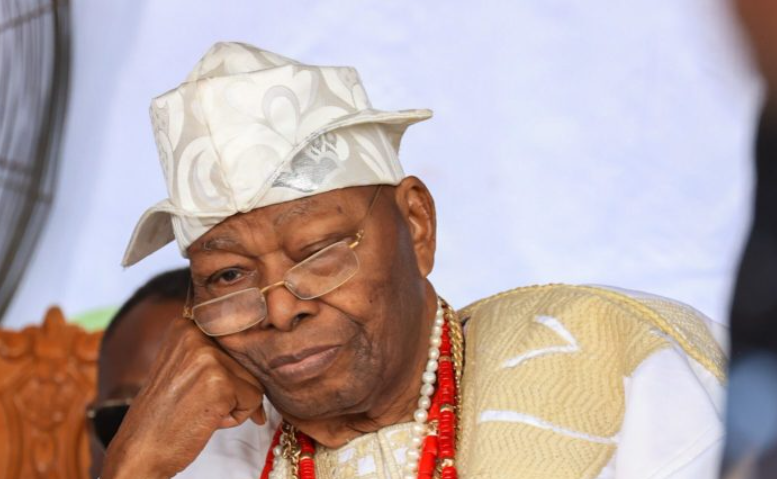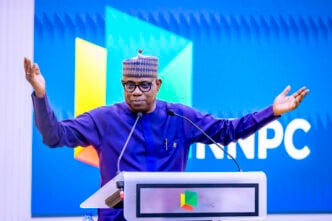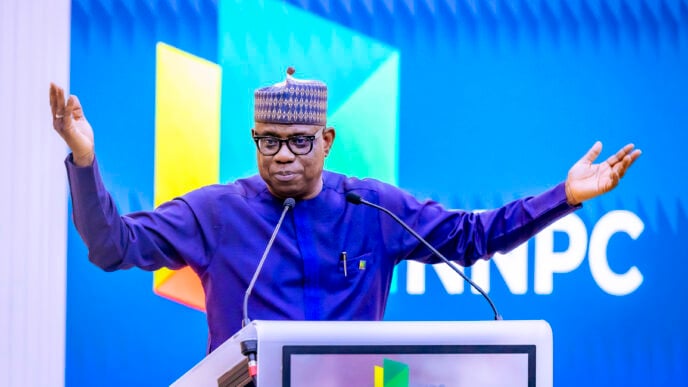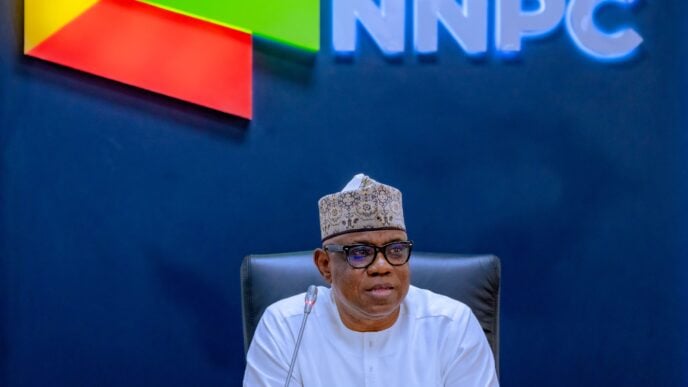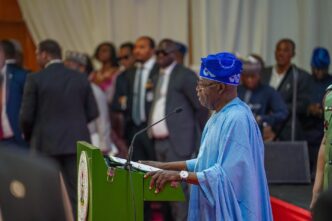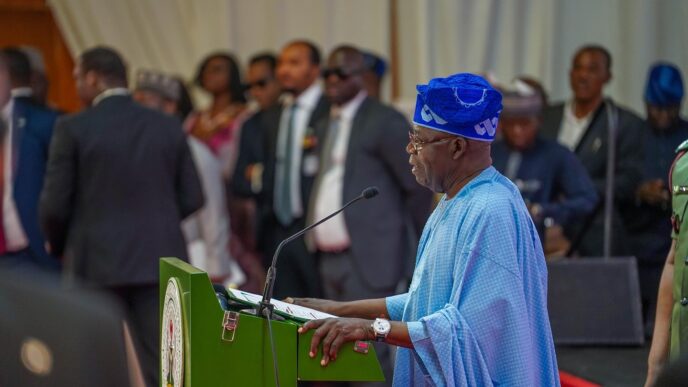BY LUQMAN MURAINA
The transition of Oba Sikiru Kayode Adetona, the Awujale of Ijebuland, and his subsequent Islamic burial have unearthed one of Nigeria’s longest-serving monarchs and a complex social and philosophical debate. At the heart of this debate are tensions between individual human rights and religious freedom, and the collective claims of tradition and communal identity.
As an Ijebu Muslim and a Nigerian social scientist trained in Nigeria, South Africa and the United Kingdom, and as a decolonial and anti-colonial thinker who is critical of Western modernity and its histories of violence, I approach this issue with necessary ambivalence. I believe in decentering Eurocentric modernity while simultaneously respecting indigenous ways of knowing and belief.
Oba Adetona’s Burial Reform: A Precedent Rooted in Principle
Advertisement
Oba Adetona’s Islamic burial was neither a last-minute defiance nor a religious posturing. As far back as 1997, the Ijebu Traditional Council, under his leadership, released a communique advocating for the burial of kings according to their religious beliefs, explicitly without prejudice to traditional rites. It allowed children and families of kings to lead memorial services, ensuring cultural sensitivity without forced spiritual compliance.
As affirmed by the Grand Chief Imam of Ijebu-Ode, this has become a usual practice in Ijebu, as seen in the transition instances of Olu of Odosenlu-Alaro, Obelu of Esure, Dagburewe of Idowa and Ebumawe of Ago Iwoye. Why is there so much hullabaloo when the same law is being applied as in the Awujale’s case?
Fast forward to 2021, and the Ogun State Obas and Chiefs (Amendment) Law was passed. Sections 55 to 57 specifically banned cannibalism, mutilation, ritual killings, human sacrifice and the practice of abobaku, and the desecration of royal corpses. Oba Adetona’s influence in making this possible cannot be overemphasised.
Advertisement
Awujale’s burial was not a negation of culture; it was a homegrown cultural evolution. A deliberate, lawful, and morally grounded act of personal and communal reform.
Decolonial Tensions: Modernity, Secrecy, the Sacred, and the Inhumane
While I commend the burial rights of Oba Adetona, I am uneasy with framing these reforms solely as a triumph of “modernity.” As Dr. Oyesanya Oyekolade of TASUED rightly argued in defence of dignified burials for Obas, we must tread carefully in how we conceptualise that dignity. He states, “If modernity has no place in tradition, then tradition has no place in the lives of modern people”. I respectfully disagree.
Foremost, this binary is problematic. As a decolonial student, I reject both the romanticisation of tradition and the hegemony of Western modernity. The histories of Western modernity, rooted in colonisation, slavery, extractive capitalism, (neo)coloniality, and (epistemic) violence, are not morally superior to indigenous systems. To shroud the right to choose one’s burial in the language of “modern progress” is to fall into a linear Western developmentalist trap. It situates African peoples, religions, cultures, and philosophies as incapable of agency and reform.
Advertisement
Importantly, ritual killings and sacrifices are not limited to the Yoruba culture. In ancient Egypt, Pharaohs were buried with hundreds of slaves to serve them in the afterlife, and that system has since changed. Similar customary traditions have been seen among the Vikings (Scandinavia), Ancient China, and the Aztecs (Mexico). The tradition itself is not divine; it was made by humans under certain contexts, and we must revise it when the conditions that birthed it no longer exist.
I support the Islamic burial of Oba Adetona not because it conforms to “modernity”, but because it is a legitimate expression of his religious freedom, protected by around four decades of law reforms and guided by social ethics and morality.
I fully appreciate the concept of the sacred in any indigenous ontology and cosmology, something I learned in relation to indigenous peoples and scholarship from New Zealand, Canada, and Australia. The spiritual dimensions of Yoruba kingship, rooted in ancestral rites, Ifa consultations, and the metaphysical embodiment of the Oba as (the deputy of the) Orisa, must not be ridiculed.
However, the fabrics of secrecy surrounding the burial rites have made it difficult to distinguish what is sacred from what is violently obscure whenever the fabric tears, and there becomes something to see. Moreover, there are high-powered indications and reports of mutilation, bodily part consumption for incoming kings, and coerced sacrifice of others. I contend that what is sacred should be awe-inspiring, not horrifying and inhumane.
Advertisement
Ritual Power or Ritual Violence? A Political Economy of Kingship
What is the intended purpose of the institutionalised mutilation and cannibalisation of royal corpses? If the answer lies in transferring spiritual power and granting authority and legitimacy, we must then ask whether such beliefs still align with the constitutional democracy monarchies are subjected.
Advertisement
Today, first-class monarchs are subordinated to state governors, ridiculed in public affairs, and removed by executive fiat. For instance, Emir Sanusi Lamido was unceremoniously dethroned, the Sultan of Sokoto has allegedly been under political pressure, and Oba Adeyeye Ogunwusi of Ife has often been publicly sidelined by political elites. These incidents prove that the metaphysical aura traditionally bestowed on monarchs no longer translates into real political sovereignty. Why must their corpses then be subjected to indignity practices, if the position has become a play tool of politicians and judges?
Kingship and Religious Neutrality: A Myth?
Advertisement
Another important question: is kingship a religiously neutral institution or not? Some critics argue that if a king refuses traditional burial, he should not ascend the throne in the first place or resign the position (is this even possible?) because the ‘throne’ manifests the weight of history, gods, and ancestral power. Another called it hypocrisy to enjoy “ancestral power” but deny “ancestral rites.” A WhatsApp exchange likened it to working at GTBank and expecting UBA pension – if you don’t want the rules to apply, don’t take the throne.
I consider such analogies trivialise both the kingship and the faiths that millions of Yoruba people now follow. Let’s be clear, the Obaship is not the exclusive property of Isese practitioners and guilds. Barrister Balogun Moruff on Facebook oversimplified that “the thrones belong to royal lineages, not religious cults”. Today, the composition of Yoruba society and many royal families is multicultural, multireligious, and pluralistic. The monarch(y) is a custodian of all, not merely a representative of ancestral cults. Should Islam and Christianity, now constituting around 95% of the Yoruba people’s religious demographics, be excluded from the throne unless they perform rites that violate their conscience? That is not tradition; it is gatekeeping.
Advertisement
My answer to the ‘religious neutrality’ is nuanced. At its roots, the Yoruba monarchy was deeply spiritual, linked with Ifa, Ogun, and other ancestral deities. The key here is to recognise the hybridity that Obas today operate – the junction of spiritual symbolism, cultural ambassadors, and civic duty. Monarchs are state-recognised figures, receiving salaries and security from taxpayers and playing roles in governance, dispute resolution, electoral influence, interfaith diplomacy, and public administration. Their functions are not solely spiritual and customary but legal and political. There must be room for sacredness, but not sacrifice; religious ritual, but not coercion; tradition, but not torture (spiritual or physical).
The Challenge of Evolving Traditions
As a Muslim, I reaffirm Oba Adetona’s right to an Islamic burial. But I am also aware that many traditionalists feel slighted, not just by the burial, but by the larger loss of cultural authority. To them, it feels as though their ritual epistemology is being erased, something I always stand against in my scholarship – epistemicide.
But here is my position: traditional religion is a significant PART of culture (Asa). Customs (Isese) are diverse, including linguistic, culinary, architectural, medicinal, political, economic, and definitely religious. If the Yoruba people have abandoned Ifa and Sango for Islam or Christianity, we cannot force spiritual compliance in death, including among Kings. We can preserve Ifa texts, support African Indigenous Knowledge Systems, and ensure cultural continuity, but we must not use culture to override consent.
Now, let me say something clear: I am not an advocate of intellectual colonialism. I oppose those who use Eurocentrism and ‘modernity’ to denigrate Ifa or traditional Yoruba systems. As a Sunni Muslim, I do not worship Ifa, but I study and believe in it, the exact same way I practice ‘science’. Ifa embodies insights on morality, conflict, cosmology, and communal health. I believe Ifa has tools that can enrich public policy, disaster and conflict management, global health, agricultural (productivity), and psychological healing. Epistemic value is not the same as ritual loyalty!
Final Thoughts: Tradition Must Listen to Conscience
Oba Sikiru Adetona was not a perfect monarch. He centralised and controlled Islamic authority – the Imamates in Ijebuland, occasionally to the exclusion of dissenting voices like Sheikh Abdul Rasheed Mayaleke. Meanwhile, Oba Adetona’s support for governance education, through the ‘Sikiru Kayode Adetona Institute for Governance’ at OOU, also shows an unparalleled legacy and vision.
His burial has forced us to confront uncomfortable questions. Are we defending sacred traditions or protecting ritual power? Are we allowing the dead their final rights, or are we using death to sustain traditional theatre? Is tradition meant to serve the people, or are the people enslaved to tradition?
As a Yoruba man, I honour my ancestors. As a Muslim, I pray for their souls. As a decolonial thinker, I question cultures that cloak injustice, including Western modernity and coloniality, and I do not romanticise the past.
Let no one say that those of us who support Oba Adetona’s burial want to destroy Yoruba culture. That is lazy thinking! I believe in Yoruba culture. I speak it. I teach it. I write it. I will raise my children in it. But I do not think culture is fixed. We do not burn widows, nor give widows out as gifts to siblings, nor do we send the hunchback to live in forests again. Culture must be relevant to both the living and the dead. If tradition could evolve to its current form, it could evolve Afrocentrically again.
As the body of Oba Adetona returned to the earth, wrapped in white Islamic shrouds and not the sacrificial regalia of old, I saw not weakness, but strength. I saw a courageous king consistent with his values, a monarch who respected tradition but refused to be imprisoned by it.
Nigeria must now rise to his example, not by choosing one tradition over another, but by building a society where African-centred freedom, belief, prosperity, and belonging can coexist, even in death. In many ways, Oba Adetona prepared Nigeria for the conversation we are having now, and we must continue to ask critical and transformative questions as regards our past, current, and future.
Luqman O. Muraina is a postgraduate researcher/PhD candidate at the Interdisciplinary Global Development Centre, University of York, York, United Kingdom. He can be contacted via [email protected]
Views expressed by contributors are strictly personal and not of TheCable.
